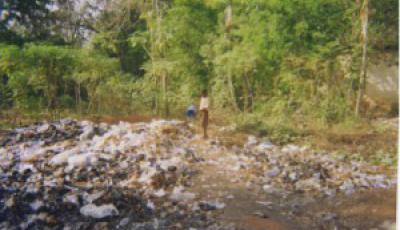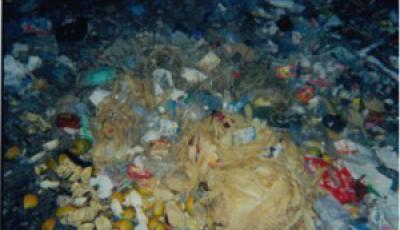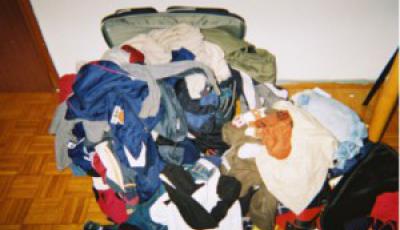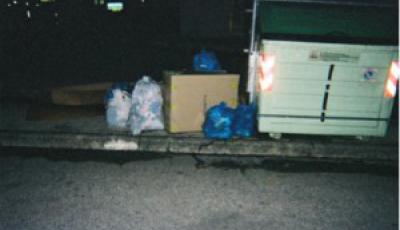Guest post by Giovanna Fassetta, Research Associate, Faculty of Humanities and Social Sciences, University of Strathclyde. Giovanna taught for over twenty years in Italy, Eritrea, and the UK. She received a PhD in Sociology from the University of Strathclyde in 2012, with a research project that looked at children’s expectations and experiences of life in a different country. Giovanna is the chair of Scottish Detainee Visitors (SDV), a Scottish charity that offers emotional and practical support to people who are detained in Dungavel Immmigration Removal Centre.
In 2009, when we met, Georgiana was a 14-year-old girl attending a state school in the area of Greater Accra, Ghana (all names are pseudonyms). Her mother and father had migrated to Italy when she was just a toddler. She was expecting that her mother, who had now divorced her father, would soon obtain a family reunion visa that would allow Georgiana to join her. In common with many other children of unskilled labour migrants worldwide, Georgiana had been left in the care of extended family members while her parents migrated. I met her, and 12 other young people in a similar situation, during my fieldwork in Ghana. I was researching the ways in which children imagine Italy, the country where their parents are, and I was also seeking to capture young people’s expectations, hopes, and concerns at the prospect of moving to join them. As part of the study, I asked the children to take pictures of anything they imagined would be different in Italy, and of anything that they would be sorry or happy to leave behind once they too were to move. The following is one of the photographs that Georgiana took:

When I asked her to comment on the choice of subject for this picture, Georgiana told me: “This is the reason why I want to leave the country. Me, I put the rubbish in my pocket or in my bag and then drop it in the nearest bin. But most Ghanaians are illiterate and they don’t know about cleaning and so they put it anywhere, and that causes a lot of... malaria.”
At first, I put down the causal connections between illiteracy, dirt, and disease that emerged from Georgiana’s account to the school curriculum and perhaps to some specific lesson on environment and pollution. However, the theme of Ghanaian dirt and untidiness, sometimes, as in Georgiana’s case, causally linked to ignorance and lack of education, was to return again and again in the children’s narratives, as well as in the photographs’ subjects, indicating a further, symbolic layer of concern. Similarly to Georgiana, for example, 13-year-old Wendibel had taken a picture of rubbish to illustrate the differences between Italy and Ghana:

The ‘virtues of cleanliness’ that belong to western colonizers justified their moral superiority and the subjugation of African peoples as a way to enlighten and bring civilization to the ‘dark continent.’ Even though the subsequent history of fights against the colonizers for self-rule and cultural autonomy have challenged the myth of western superiority, some of these narratives still appear as an undercurrent in the ways in which the young Ghanaians constructed their imaginings of the west in relation to Ghana. These are, arguably, further entrenched by popular media portrayals of successful lifestyles unfolding against a background of aseptic urban-scapes, where technology is ubiquitous and where dust and waste are hidden from view.
The choice to photograph dirt and rubbish disposal wasn’t limited to the children in Ghana. A second group of young people who took part in the research comprised children born in Italy of Ghanaian parents. In a ‘mirror’ perspective to the children left behind in Ghana, I asked them to discuss a place of which they had no direct experience, but to which they had strong links through significant others. In this case, I focused on the children’s narratives of Ghana, the country of origin of their parents and the one where their extended families still lived. Although the children had never visited Ghana (or had only been there when still very young), they nevertheless experienced the country through their parents’ narratives, and through the songs, TV shows, and Ghanaian films that seem to be very popular among the Ghanaian diaspora in Italy. Most young people, moreover, made frequent phone calls to grandparents, uncles, aunts, and cousins whom they’d never met in person, but whose voices on the other side of a phone they knew well.
Again, in both the children’s photographs and narratives, the issue of cleanliness and tidiness was to return. Italian-born Roberto, who was 14 at the time we met, had taken, amongst others, this photograph:

When I asked, jokingly, whether there had been a suitcase explosion, he replied: “No, I have a wardrobe, but my cousin and I, since we wanted to take some African pictures, we threw everything in there

Slatan told me that he had chosen this particular subject as, upon arrival in Italy, he had been surprised by the country’s lack of cleanliness, a feature which, similarly to Georgiana and Wendibel, he had clearly anticipated prior to leaving Ghana. “I never thought I would see all this rubbish like this,” he commented. “In Ghana we have bins, but we only put the rubbish out if they are full. When I opened this [bin], it was almost empty, but people had put stuff on the ground all the same.” Slatan’s pre-departure expectations had been disappointed by the encounter with ‘reality’: not only had Italy failed to match his expectations, in some ways, it had revealed itself to be even worse than Ghana. Again, the relative balance of moral virtue of the two countries was implied in the metaphor of cleanliness and dirt, but this time the imagery was used against Italy, to highlight its failure to provide the social context and lifestyle to match the aspirations that had driven his family’s (and his own) migration project.
Having gone from imagined and expected, to lived and experienced, the children who had recently migrated were in a better position to see through the ‘collective lie’. Writing about Algerian migrants to France in his 2004 collection of essays The Suffering of the Immigrant, Abdelmalek Sayad described the collective lie as the misrecognition that is “[…] sustained by the entire group, by emigrants who select the information they bring back when they spend time in their country, by former emigrants who ‘enchant’ the memories they retain of France, and by candidates for emigration who project their most unrealistic expectations onto France.” For the young Ghanaian migrants in Italy, however, the emperor was naked: not only had the expected and hoped-for social advancement failed to materialize but, for many of them, being the children of unskilled African labour migrants had turned out to mean being at the bottom of the Italian social ladder and having to face discrimination and racism. For many young migrants, this means a blow to individual and collective self-image that is, arguably, amongst one of the toughest―and least anticipated―challenges of migration.
For more on this research project, see Giovanna’s recent publications:
-
2014. The social and symbolic aspects of languages in the narratives of young (prospective) migrants. Language and Intercultural Communication.
Want to start a discussion about this topic? Post a comment here or on our Facebook page. You can also tweet us.
____________________
How to cite this blog post (Harvard style):
Fassetta G (2014) A Change of State. Available at: http://bordercriminologies.law.ox.ac.uk/a-change-of-state (Accessed [date]).
Share:








